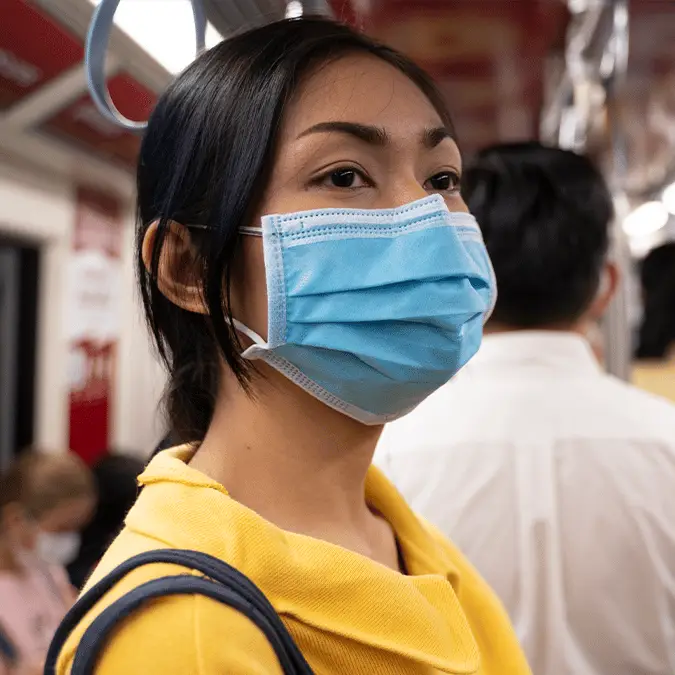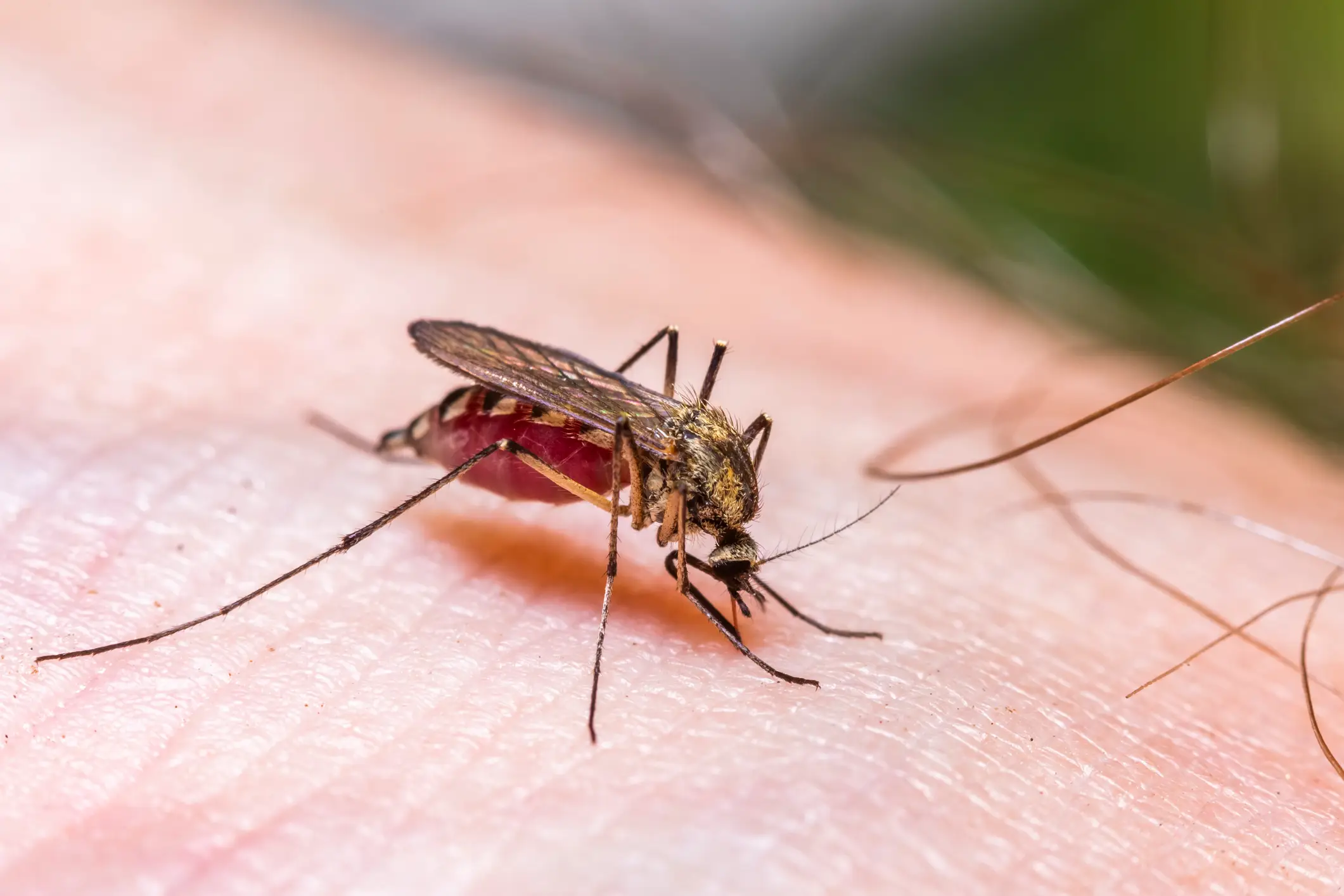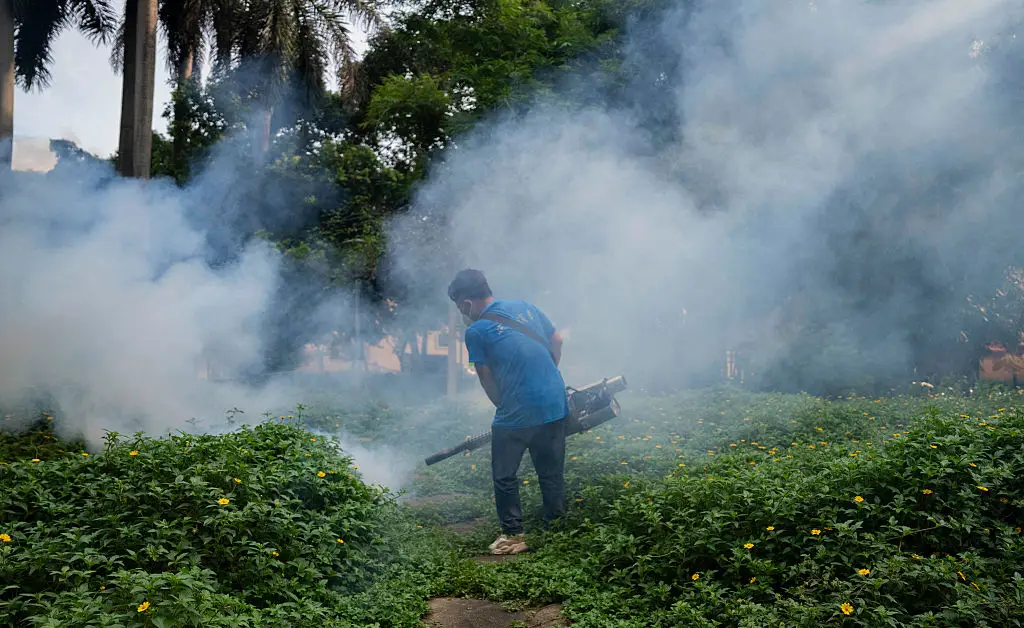
Just when we thought we'd come out the other side of COVID-19, there are concerns that the next global pandemic is already knocking on the door. It's true that COVID-19 isn't completely gone, and with 858 global deaths recorded in July 2025, it should still be taken seriously.
Following fears that 20 new bat viruses discovered in China could lead us to the next big pandemic, the country is now battling an outbreak of the chikungunya virus.
13 cities in China's Guangdong province are currently dealing with chikungunya, with the city of Foshan thought to be the epicenter.
Over 7,000 cases have been reported, and with numbers climbing, China has vowed to enforce "forceful pandemic measures."
What is the chikungunya virus?

Advert
Typically spread by Aedes mosquitoes, the World Health Organization recently issued guidelines warning that 5.6 billion people worldwide could be at risk of being infected by arboviral diseases that include chikungunya, dengue, Zika, and yellow fever. Infected mosquitoes bite a host, who is then infected by chikungunya. Even though it can't be directly transmitted from person to person, those who've contracted the virus can inadvertently spread it when they're bitten by other mosquitoes.
Those who test positive have to remain under a mosquito net in the hospital until they test negative or seven days have passed.
Even though chikungunya is usually a problem in South and South East Asia, the recent spike in Chinese cases has become a cause for concern.
As well as releasing giant elephant mosquitoes to eat the infected chikungunya mosquitoes, Chinese authorities have also unleashed 5,000 larvae-eating fish, and are using drone technology to locate sources of stagnant water.
Residents in Foshan have been ordered to remove stagnant water from everything from coffee machines to flowerpots, with those who fail to comply being charged up to 10,000 yuan ($1,400).
How does the chikungunya virus affect your body?
Although the mortality rate among chikungunya patients is extremely low and largely puts babies and the elderly at risk, its symptoms can sometimes last for years, even in the healthiest of people.
Symptoms that may indicate you've been infected with chikungunya include fever, debilitating joint pain/swelling, muscle pains, headache, nausea, fatigue, and a red rash. These symptoms will typically occur between three and seven days after you've been bitten. Alongside the young and elderly, those with medical conditions like high blood pressure, diabetes, and heart disease are also more at risk.
The CDC warns: "Most patients feel better within a week. However, joint pain can be severe and disabling and might persist for months."
Anyone who's visited an area dealing with chikungunya should speak to their healthcare professional to explain where they've been, with them potentially ordering blood tests to check for chikungunya and similar viruses like dengue and Zika.
Is there a cure for the chikungunya virus?

Unfortunately, the CDC reiterates that there's no cure or even medicines to treat the chikungunya virus. Rest, fluids, and over-the-counter pain medicines might relieve some of your symptoms, while acetaminophen or paracetamol can help reduce fever and pain.
You're told not to take aspirin or other non-steroidal anti-inflammatory drugs (NSAIDS) like ibuprofen until professionals can rule out dengue due to the risk of bleeding.
As we previously mentioned, anyone infected must avoid being bitten by mosquitoes for a week to prevent the virus' spread.
While authorities seem to be on top of chikungunya for now, we'll be keeping an eye on whether the number of cases continues to rise.